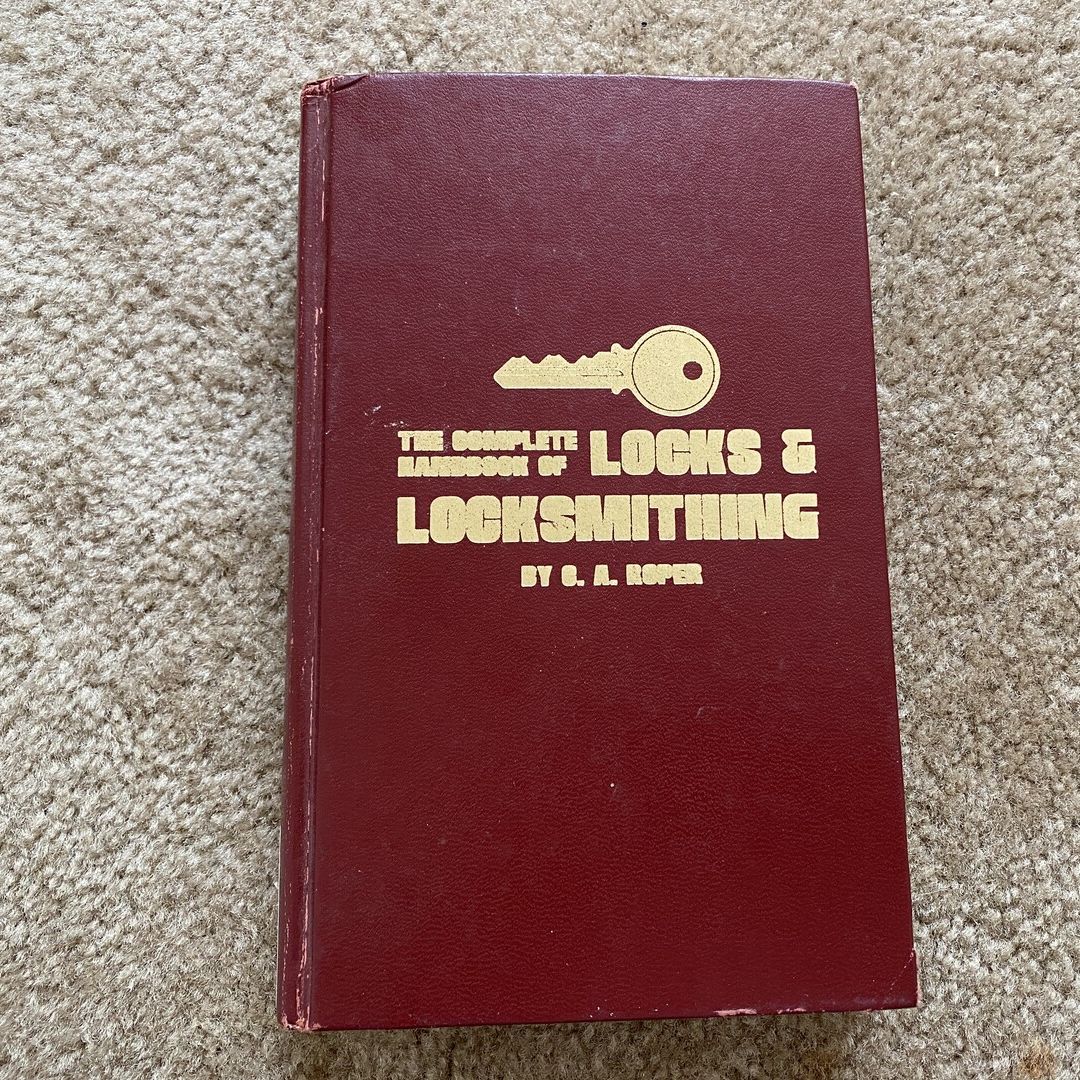
The complete handbook of Locks & Locksmithing by C. A. Roper
- Foundation date
01 January 1976
The complete handbook of Locks & Locksmithing by C. A. Roper
FIRST EDITION
FIRST PRINTING-SEPTEMBER 1976
SECOND PRINTING-JANUARY1977
Copyright © 1976 by TAB BOOKS
Printed in the United States
of America
Reproduction or publication of the content in any manner, without
express permission of the publisher, is prohibited. No liability is
assumed with respect to the use of the information herein.
Hardbound Edition: International Standard Book No. 0-8306-6920-5
Paperbound Edition: International Standard Book No. 0-8306-5920-X
Library of Congress Card Number: 76-43134
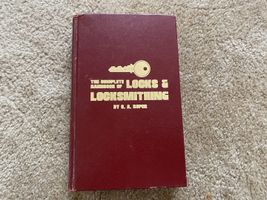



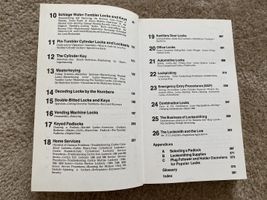

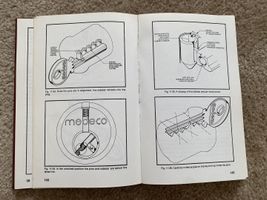
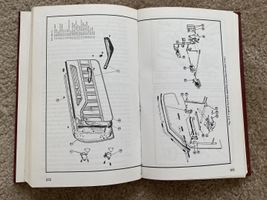
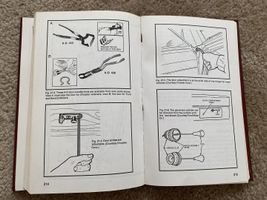
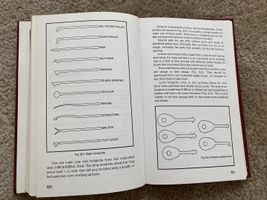
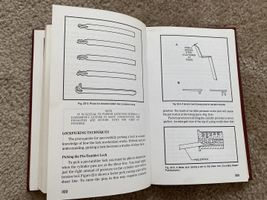
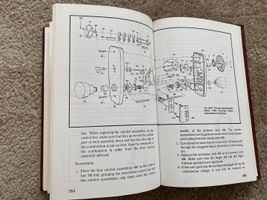
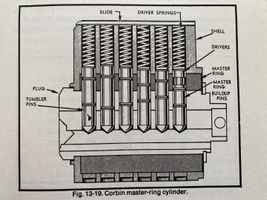
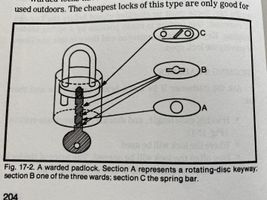
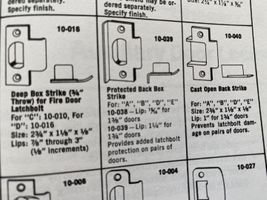
This handbook on locksmithing is written for the student, the
professional locksmith, and for everyone who is interested in
the fascinating world of locks.
There is enough material here to get you started in the
business of selling, servicing, and installing locks. Besides the
challenge of the work, locksmithing is a very lucrative
profession. According to the U.S. Occupation Outlook
Handbook and the Locksmith Ledger, a self-employed
locksmith can look forward to earning twice the hourly wage of
an auto mechanic and three times as much as a
watchmaker. And locksmithing is rewarding in other ways:
no other craft offers such prestige and trust.
The amateur - the student of lock technology and the
collector - will find much that is rewarding here. One chapter
traces the evolution of the lock from simple Egyptian bolts,
through Greek and Roman designs, locks of the Middle Ages,
and the Renaissance. the latchstrings of the American frontier,
and concludes with the great Nineteenth-Century Revolution in
lockmaking. Other chapters carry the story to modern times,
including ultra-high security locks used in military
instalations.
Thave tried to include everything that you need to know Each
Di the various lock mechanisms- combination, warded, lever,
dis. wafer, and pin-tumbler-is discussed in detail with an eye
to troubleshooting and servicing. Chapters are devoted to
interior and exterior locksets. with special emphasis on the
most popular brands. While locksmithing requires
surprisingly few tools, each tool that you will need is described
and, in most cases, illustrated. Instructions are given on how
to make your own tools and how to choose and buy
factory-made tools.
professionals will welcome the chapter on masterkey
systems, the in-depth information on Schlage and Corbin
locksets, and the discussion of Medeco and other speciality
locks. Vending-machine, filing-cabinet. post office box, and
automobile locks are illustrated and discussed in detail.
Carl A. Roper
